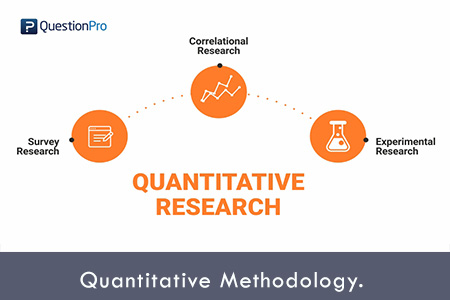All There Is To Know About Using Quantitative Methodology for Your Dissertation
Are you designing your dissertation’s research methodology section and don’t know whether to choose the quantitative research or the qualitative one?
Don’t take this decision lightly as this decision will have a strong impact on the entire outcome of your research.
But before we tell you when you should conduct the quantitative research and what are its advantages and disadvantages, let’s first have a look at the most basic query of all:
What is the quantitative research methodology?
It is the process of measurement to prove a connection between two certain variables; one of which is dependent and the other is independent.
So, if your research is related to the field of mathematics, economics, statistics or political science then you will most probably use the quantitative research methodology as it involves empirical testing and computational techniques.
Quantitative research is mainly conducted when
- You need to find out ‘how many’ or ‘how often’
- You need to find what percentage or proportion of the total audience has a certain kind of behavior.
Some of the basic methods of collecting data through this type of research are:
- Surveys and questionnaires
- Interviews
- Observations
- Empirical experiments
- Focus Groups
The questions that are mainly designed for this type of research are close-ended so that it is easier to quantify them and run statistical tests after being updated in the statistical tool chosen.
- Advantages Of Quantitative Methodology:
Quantitative research is an excellent way to properly test a hypothesis and see if it will be approved or not. That may not be the case in qualitative research as it is quite complex and it is very hard to keep the research focused on one central theme in a qualitative study. Also, the method to conduct quantitative research has not changed much over the centuries. Another great advantage that this method serves is that if the research model is designed properly then the chances of biases and subjectivity are eliminated. And the researcher could give an authentic answer. - Disadvantages Of Quantitative Methodology:
This method requires extensive knowledge of statistical and mathematical tools which can be quite difficult if you are not related to this field. These surveys are also quite expensive to design and perform as the respondents that are finally selected must be completely random and unique. Also, the statistical tool that is selected to experiment with the data must be extremely appropriate otherwise the hypothesis will be proven incorrect and the data will have to be refined and retested. Also, for the subjects of social sciences and psychology, this method of the experiment may not be most appropriate as it only determines the black and white areas and does not focus on the greys, unlike the qualitative research.
Hence, you now know everything there is to know about the quantitative research method. You are now aware of its uses, data gathering techniques and the advantages and disadvantages this research type serves.





